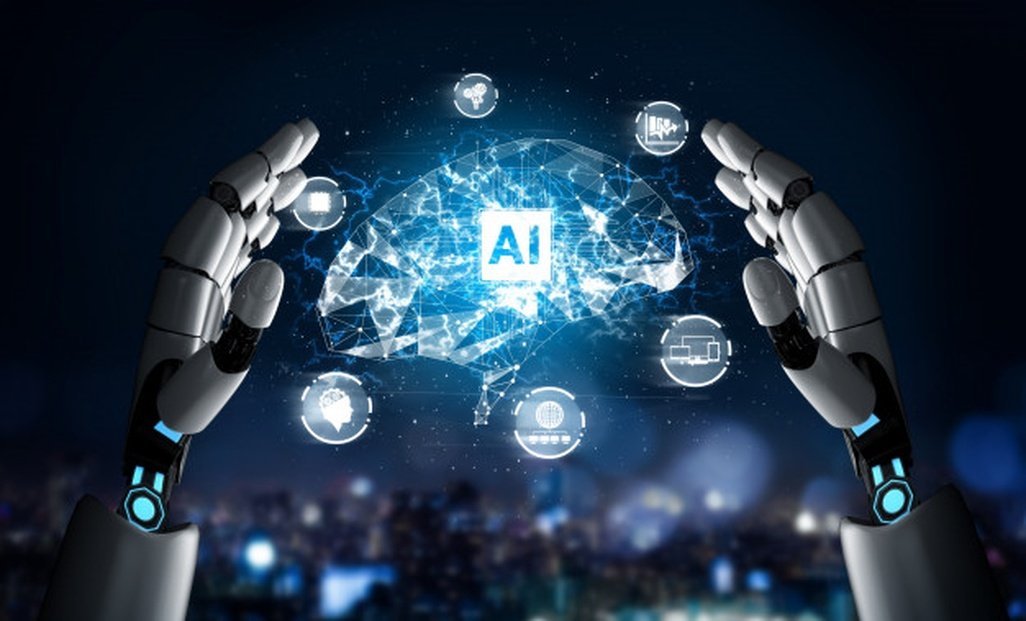Artificial Intelligence and Education
Table of Contents
As technology continues to advance at a rapid pace, it is no surprise that it has had a significant impact on education. Artificial intelligence (AI) has become increasingly prevalent in the field of education, and its use is transforming the way we learn. In this article, we will explore the ways in which Artificial Intelligence and Education and its potential to revolutionize the education system.
Personalized Learning
One of the most significant benefits of AI in education is the ability to personalize learning. By analyzing data on students’ learning styles, progress, and performance, AI can create tailored lesson plans and learning materials that are tailored to each student’s needs. This personalized approach to learning can help students learn more efficiently and effectively, leading to better academic performance.
Adaptive Learning
Adaptive learning is another aspect of AI that is transforming education. Adaptive learning platforms use algorithms to adjust the difficulty and pace of learning materials based on students’ abilities and progress. This approach ensures that students are always being challenged and are not bored or overwhelmed by the material. Additionally, adaptive learning platforms can provide immediate feedback to students, which can help them to correct mistakes and reinforce learning.
Intelligent Tutoring Systems
Intelligent tutoring systems are another area where AI is being used in education. These systems use natural language processing and machine learning algorithms to create conversational interfaces that simulate human tutors. By analyzing students’ responses and adapting to their learning styles, these systems can provide personalized and effective instruction to students.
Automated Grading
Grading can be a time-consuming and tedious task for teachers. However, with the help of AI, grading can be automated. Machine learning algorithms can be trained to grade assignments and tests, saving teachers time and reducing the potential for bias. Additionally, automated grading can provide immediate feedback to students, which can help them to improve their performance.
Virtual and Augmented Reality

Virtual and augmented reality technologies are also being used in education. These technologies can provide immersive learning experiences that are more engaging and memorable than traditional classroom learning. For example, students can use virtual reality to explore historical sites or practice complex medical procedures.
Intelligent Content
AI is also being used to create intelligent content. This type of content can adjust its difficulty level based on students’ abilities and progress, ensuring that students are always being challenged. Additionally, intelligent content can provide personalized feedback to students, which can help them to improve their performance.
Predictive Analytics
Finally, predictive analytics is another area where AI is being used in education. Predictive analytics uses data analysis and machine learning algorithms to predict student outcomes, such as academic performance and graduation rates. This information can be used by teachers and administrators to identify at-risk students and provide early interventions to prevent them from falling behind.
Read More:Blockchain for Social Good: How this Technology is Transforming the Non-Profit Sector
Conclusion
AI has the potential to revolutionize education by providing personalized, adaptive, and effective learning experiences. From personalized lesson plans to automated grading and virtual reality, AI is transforming the way we learn. While there are still challenges to overcome, such as ensuring that AI systems are transparent and unbiased, the future of AI in education looks promising. By embracing these technologies, we can create a more equitable and effective education system that prepares students for success in the 21st century.
One of the key benefits of AI in education is its ability to provide personalized learning experiences. By analyzing data on students’ learning styles and progress, AI systems can create tailored lesson plans and learning materials that are optimized for each student’s needs. This can help students to learn more efficiently and effectively, leading to better academic performance.
Adaptive learning platforms are another area where AI is being used in education. These platforms use algorithms to adjust the difficulty and pace of learning materials based on students’ abilities and progress. This ensures that students are always being challenged and are not bored or overwhelmed by the material. Additionally, adaptive learning platforms can provide immediate feedback to students, which can help them to correct mistakes and reinforce learning.
Intelligent tutoring systems are another example of how AI is transforming education. These systems use natural language processing and machine learning algorithms to create conversational interfaces that simulate human tutors. By analyzing students’ responses and adapting to their learning styles, these systems can provide personalized and effective instruction to students.
Automated grading is another area where AI is being used in education. Machine learning algorithms can be trained to grade assignments and tests, saving teachers time and reducing the potential for bias. Additionally, automated grading can provide immediate feedback to students, which can help them to improve their performance.
Virtual and augmented reality technologies are also being used in education. These technologies can provide immersive learning experiences that are more engaging and memorable than traditional classroom learning. For example, students can use virtual reality to explore historical sites or practice complex medical procedures.
Intelligent content is another area where AI is being used to transform education. This type of content can adjust its difficulty level based on students’ abilities and progress, ensuring that students are always being challenged. Additionally, intelligent content can provide personalized feedback to students, which can help them to improve their performance.
Finally, predictive analytics is another area where AI is being used in education. Predictive analytics uses data analysis and machine learning algorithms to predict student outcomes, such as academic performance and graduation rates. This information can be used by teachers and administrators to identify at-risk students and provide early interventions to prevent them from falling behind.
AI is transforming education by providing personalized, adaptive, and effective learning experiences. From personalized lesson plans to automated grading and virtual reality, AI is revolutionizing the way we learn. While there are still challenges to overcome, such as ensuring that AI systems are transparent and unbiased, the potential benefits of AI in education are significant. By embracing these technologies, we can create a more equitable and effective education system that prepares students for success in the 21st century.




